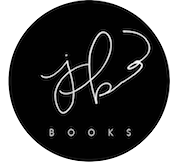If you follow me on Twitter, you already know my struggle with title-picking. Let's think about this logically: a book can be anywhere from 20,000 words to 80,000 words, and as writers, we are supposed to shrink down this whole monster (which by the way, we've labored and sweat over) into 1 or 2 or 6 words. That's like trying to put a mountain in your pocket. GOOD LUCK. Oh, and don't forget: it has to have a message or stand out or bake you cookies or something. Exhausted yet? Want to give up?
If you want to know how to choose your book title, well, you probably shouldn't have come to me, because as it stands, I don't have a title. And I don't see that happening anytime soon. (By that I mean in the next 48 hours. But 49 hours? Yeah... probably not then either.) So why is it so hard for us to pick a title? Because it's an identifier. It's the sum of all that hard work. Sometimes, writers start with a title and find a story to fit. You people are lucky. Still, I think it's easier (ish) to build a story and have it find its title along the way. Maybe it's a second draft thing? Anyway, here are some random techniques I've come up with for title-picking:
Write Down Every Idea. I am a big believer in the iPhone notes section. I have one for book plot ideas, one for quotes from friends/random strangers/etc, and one for title ideas. At this moment, I have approximately 130 title ideas, most of which I hate. So why do I keep them? A few reasons. By keeping the junk ideas, it helps me get to the heart of what I'm trying to talk about. It's giving me a focus. Also, I can mix and match bad titles and hopefully come up with something good. Maybe I'll even get a better idea from the junk pile.
Pay Attention to Words. I'm somewhat of a word collector these days. Like petrichor, which is the word for that after-rain smell. Not that I'm going to use that in my title, but you know, you could. If you pay attention to words, the light bulb in your head might just freak out and it'll be like EUREKA. Yep. BAM. Title. Did you understand any of that gibberish? No? I'm basically just saying you need words to make a title. But you already knew that.
Borrow or "Steal" Titles. You probably already stopped reading, but if you didn't, just calm down. I'm not telling you to name your book "Harry Potter" or "Gone with the Wind" or something. Think about the books that you love and look for structure. For example, Harry Potter is "Name of Character and Situation." The Great Gatsby? Proves the importance of alliteration. This is Where I Leave You? Hey, that's a full sentence. Take structures and fit your own words into it. You never know what might happen.
When all else fails, pick a title out of a hat. Name it "TBD" or "Untitled." Just pick a random word. "Button." There. That's my title. (Just kidding. I think.) I mean, what's in a title, anyway? When you think about Harry Potter, you're not thinking about the name of the book. You're picturing the characters, remembering the story, remembering how it makes you feel. In the long run, a title is a title. It's your story that people are going to remember.





